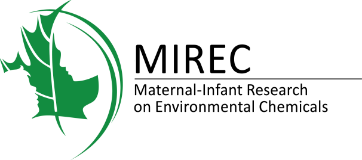
Maternal Exposure to Metals and Time-to-Pregnancy: The MIREC cohort study.
Premranjith P, King W, Ashley-Martin J, Borghese MM, Bouchard M, Foster W, Arbuckle TE, Velez MP. BJOG. 2024 Jan 18. doi: 10.1111/1471-0528.17759
Question: Is there an association between maternal exposure to arsenic, cadmium, lead, manganese or mercury, and time-to-pregnancy (TTP) and infertility?
What did the researchers do:
This study included 1784 women from the MIREC study whose pregnancy was not the result of birth control failure nor following sperm or egg donation. Concentrations of the metals arsenic, cadmium, lead, manganese and mercury were measured in maternal blood during the first trimester of pregnancy. The women answered questions on the number of months of unprotected intercourse it took them to become pregnant (time-to-pregnancy). Infertility was defined as taking longer than 12 months to become pregnant. Using statistical techniques, the researchers examined the association between metals concentrations and time-to-pregnancy. Maternal age, pre-pregnancy body mass index, education, income, recruitment site and plasma lipids were considered as factors that might affect the couple’s fertility.
What did they find:
There was no evidence that maternal blood concentrations of arsenic, cadmium, manganese, lead or mercury were associated with a longer time-to-pregnancy or infertility.
What does this mean:
This study suggests that at current environmental levels of exposure, which are low relative to levels seen in other populations, metals are not associated with a longer time-to-pregnancy or infertility.
MIREC Année all rights reserved - Privacy policy
Website by Riposte


